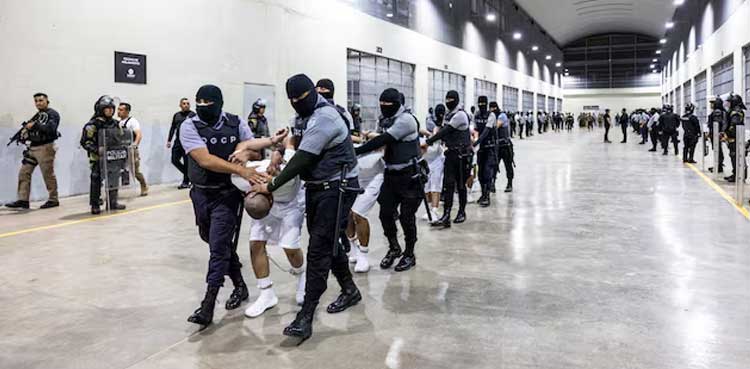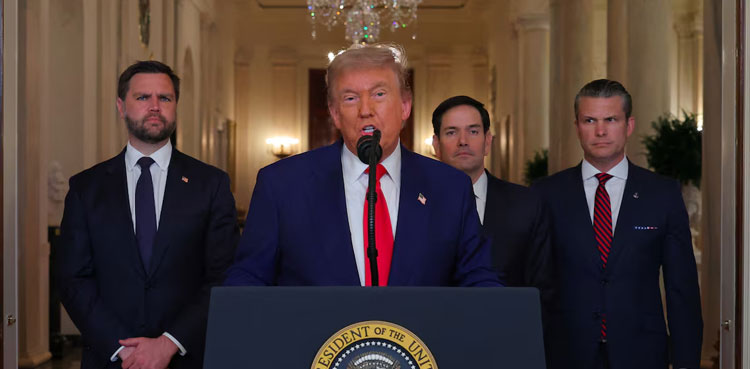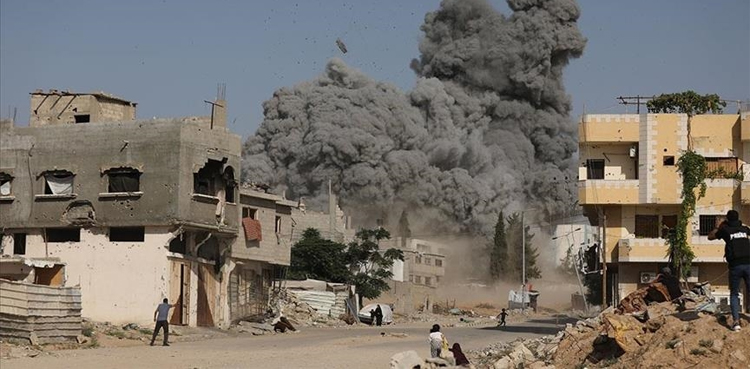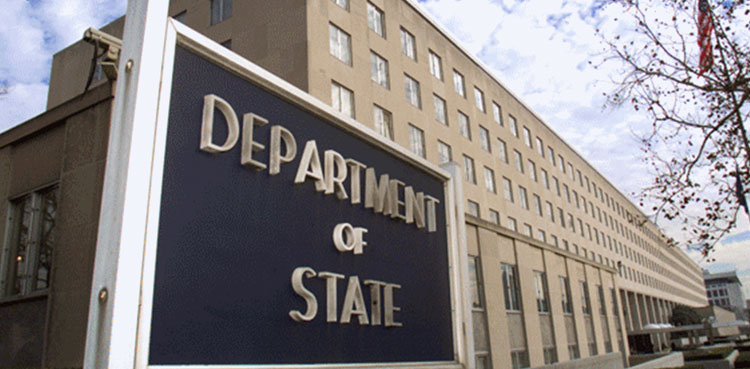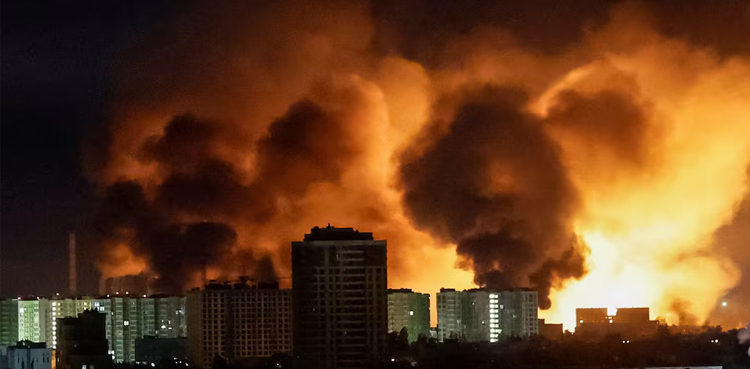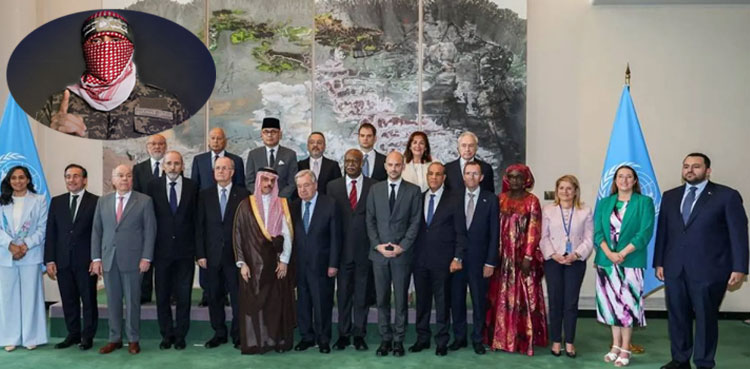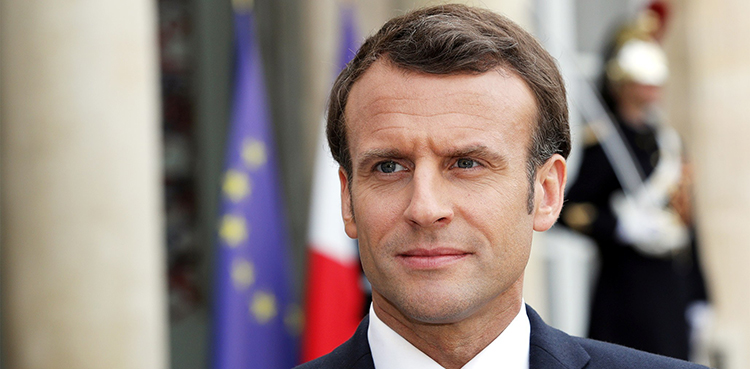WASHINGTON: US President Donald Trump ordered the deployment of two nuclear submarines Friday in an extraordinary escalation of what had been an online war of words with a Russian official over Ukraine and tariffs.
Trump and Dmitry Medvedev, the deputy chairman of Russia’s security council, have been sparring on social media for days.
Trump’s post on his Truth Social platform abruptly took that spat into the very real — and rarely publicized — sphere of nuclear forces.
“Based on the highly provocative statements,” Trump said he had “ordered two Nuclear Submarines to be positioned in the appropriate regions, just in case these foolish and inflammatory statements are more than just that.”
“Words are very important, and can often lead to unintended consequences, I hope this will not be one of those instances,” the 79-year-old Republican posted.
Trump did not say in his post whether he meant nuclear-powered or nuclear-armed submarines. He also did not elaborate on the exact deployment locations, which are kept secret by the US military.
But in an interview with Newsmax that aired Friday night, Trump said the submarines were “closer to Russia.”
“We always want to be ready. And so, I have sent to the region two nuclear submarines,” he said.
“I just want to make sure that his words are only words and nothing more than that.”
Trump’s remarks came hours after Russian President Vladimir Putin said Moscow had started mass producing its hypersonic nuclear-capable Oreshnik missile, and could deploy them to Belarus, a close Russian ally neighbouring Ukraine, by year-end.
The nuclear sabre-rattling came against the backdrop of a deadline set by Trump for the end of next week for Russia to take steps to ending the Ukraine war or face unspecified new sanctions.
Despite the pressure from Washington, Russia’s onslaught against its pro-Western neighbor continues to unfold at full bore.
An AFP analysis Friday showed that Russian forces had launched a record number of drones at Ukraine in July.
Russian attacks have killed hundreds of Ukrainian civilians since June. A combined missile and drone attack on the Ukrainian capital Kyiv early Thursday killed 31 people, rescuers said.
Putin, who has consistently rejected calls for a ceasefire, said Friday that he wants peace but that his demands for ending his nearly three-and-a-half year invasion were “unchanged”.
Those demands include that Ukraine abandon territory and end ambitions to join NATO.
Putin, speaking alongside Belarusian President Alexander Lukashenko, said Belarusian and Russian specialists “have chosen a place for future positions” of the Oreshnik missiles.
“Work is now underway to prepare these positions. So, most likely, we will close this issue by the end of the year,” he added.
Insults, nuclear rhetoric
The United States and Russia control the vast majority of the world’s nuclear weaponry, and Washington keeps nuclear-armed submarines on permanent patrol as part of its so-called nuclear triad of land, sea and air-launched weapons.
Trump told Newsmax that Medvedev’s “nuclear” reference prompted him to reposition US nuclear submarines.
“When you mention the word ‘nuclear’… my eyes light up. And I say, we better be careful, because it’s the ultimate threat,” Trump said in the interview.
Medvedev had criticised Trump on his Telegram account Thursday and alluded to the “fabled ‘Dead Hand’” — a reference to a highly secret automated system put in place during the Cold War to control the country’s nuclear weapons.
This came after Trump had lashed out at what he called the “dead economies” of Russia and India.
Medvedev had also harshly criticized Trump’s threat of new sanctions against Russia over its war in Ukraine.
Accusing Trump of “playing the ultimatum game,” he posted Monday on X that Trump “should remember” that Russia is a formidable force.
Trump responded by calling Medvedev “the failed former President of Russia, who thinks he’s still President.”
Medvedev should “watch his words,” Trump posted at midnight in Washington on Wednesday. “He’s entering very dangerous territory!”
Medvedev is a vocal proponent of Russia’s war — and generally antagonistic to relations with the West.
He served as president between 2008-2012, effectively acting as a placeholder for Putin, who was able to circumvent constitutional term limits and remain in de facto power.
The one-time reformer has rebranded over the years as an avid online troller, touting often extreme versions of official Kremlin nationalist messaging.

